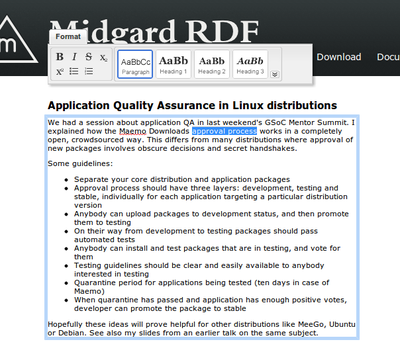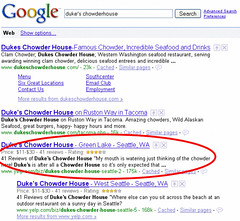Search engines have an important role in Semantic Web

Thanks to the IKS project, I've spent some thought lately in how to make something practical from the concept of Semantic Web.
As always, the big issue is getting the semantic information out there. In a strongly typed CMS like Midgard, many semantics can be gathered from content structure directly, but to really get there we need users to add metadata. And as users are lazy, this will happen only if it provides some direct benefit: just look at how frequently people tag their photos on Facebook. Irritating or not, this happens because the tags are actually used to promote the pictures in the news feeds of tagged people.
For this to happen in the web in general, we need to start having the search engines leverage the semantic information. Yahoo! already does this to some extent, making use of microformats and RDFa in Yahoo! Query Language and in the Search Monkey engine. This means we can already do simple semantic queries like "pages mentioning Bergius in the Helsinki area":
Actually, the Yahoo! results are quite interesting:
- My web page (which shows my current location, so it may depend on time indexed)
- Some Chinese(?) spam site that syndicates my content, proving that also in the Semantic Web people lie
- Some Plazes entries about me located in Helsinki
- Midgard events held near Helsinki
Since search engines (well, Google really) are the way people access the web, search engines are the key for making semantic information more widely available. Just look at DeWitt Clinton's survey of rel values from yesterday: Google-defined rel="nofollow" is the most popular rel value out there, even surpassing style sheet declarations. This if nothing else shows the power of search engines in promoting new standards.
Technorati Tags: google, iks, microformats, yahoo, rdfa, search, semanticweb


